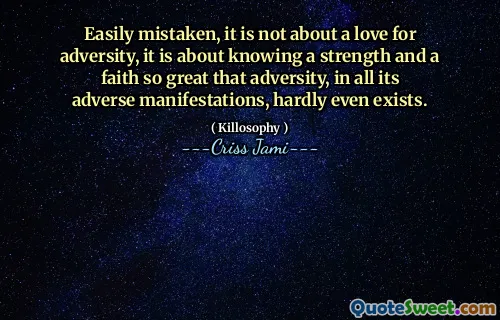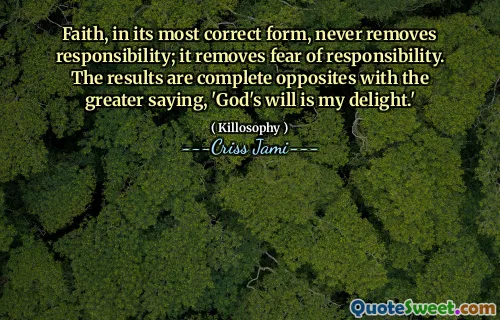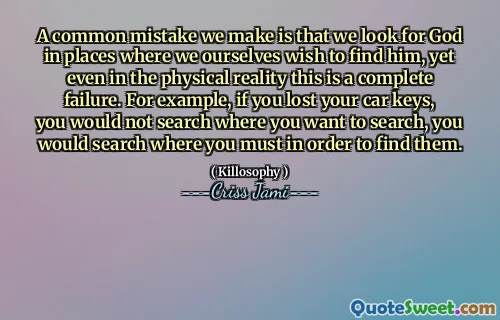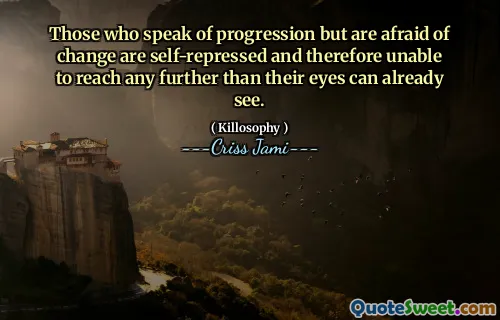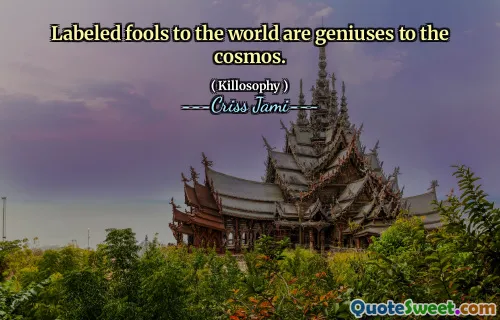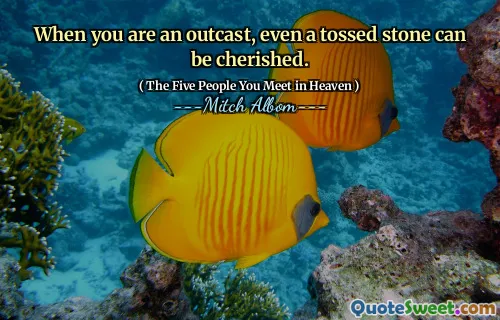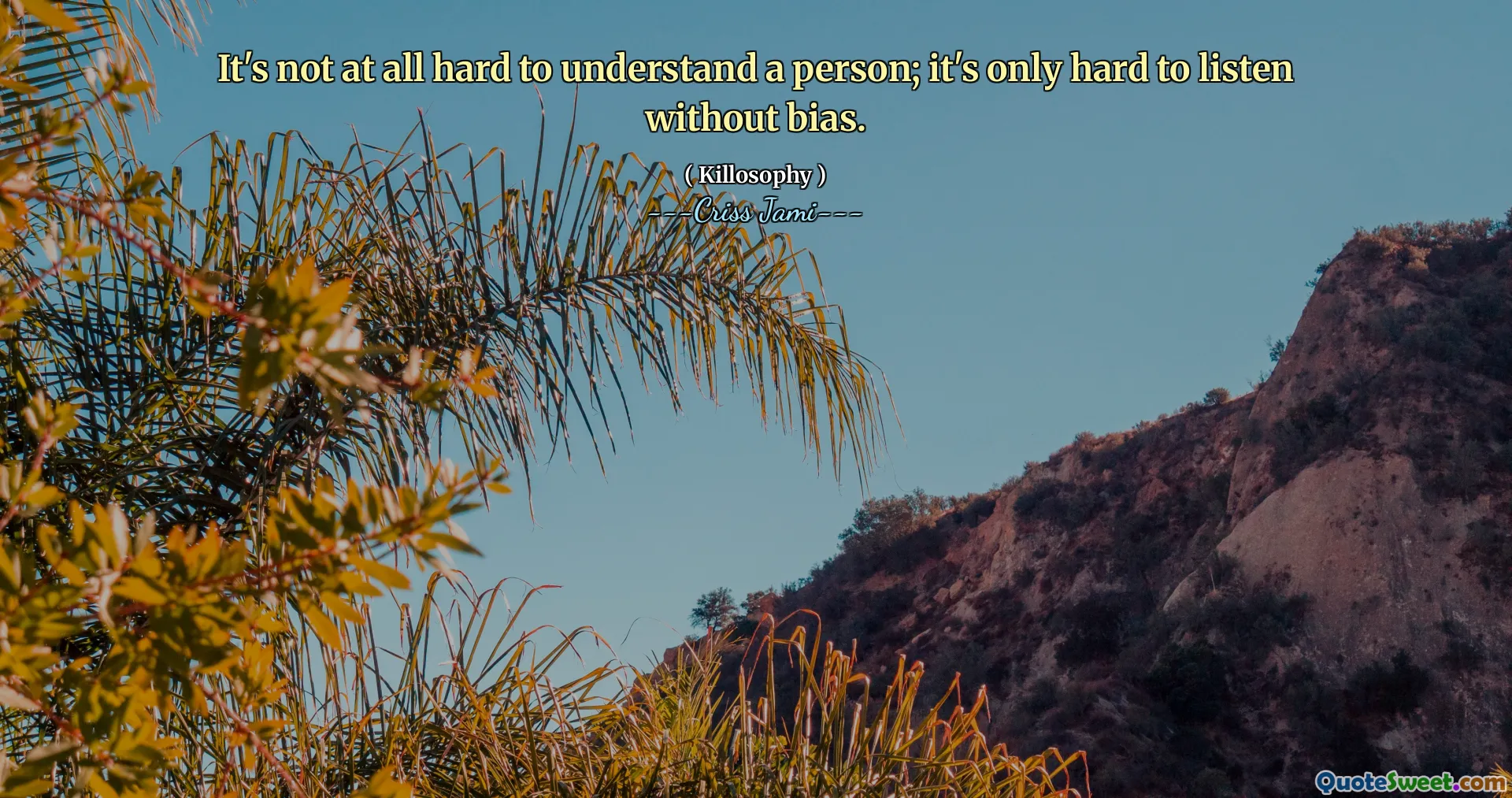
It's not at all hard to understand a person; it's only hard to listen without bias.
This quote poignantly highlights a profound truth about human relationships and communication. Often, we assume that the main barrier to understanding others lies in the complexity of their experiences or perspectives. However, in reality, the true obstacle is our own predispositions and biases that cloud our ability to truly listen. This insight urges us to reflect on our internal filters — the judgments, assumptions, and preconceived notions we bring into conversations. When we listen with an open mind, devoid of bias, understanding others becomes much more accessible and natural.
In the context of human interaction, being able to listen without bias demands a high level of self-awareness and emotional intelligence. It means setting aside our ego, resisting the urge to judge, and genuinely seeking to comprehend what the other person is conveying. This skill is essential not only for personal relationships but also for creating meaningful connections in professional and societal contexts.
Additionally, this quote challenges the common misconception that empathy is about grasping complex emotions through effortful thinking. Instead, it suggests that empathy flows more readily when we remove our mental barriers. It invites us to practice mindful listening, where the focus is entirely on the speaker, not on crafting a rebuttal or filtering through our own lens of experience. Ultimately, this practice can lead to deeper understanding, minimize conflicts, and foster a more compassionate society.
From the book "Killosophy" by Criss Jami, this reflection encourages the reader to not just hear but to truly listen, transforming how we relate to others and strengthening the fabric of human connection.

